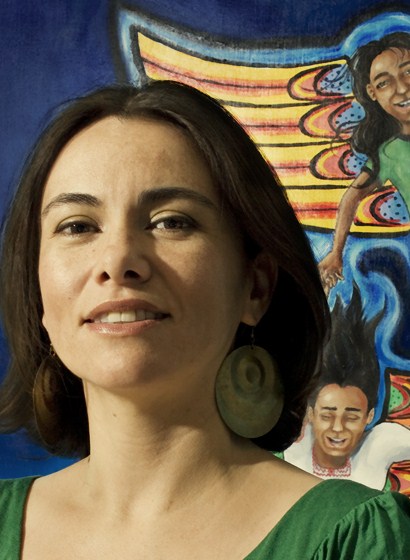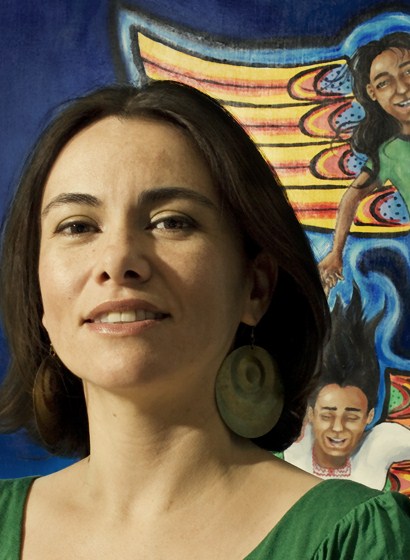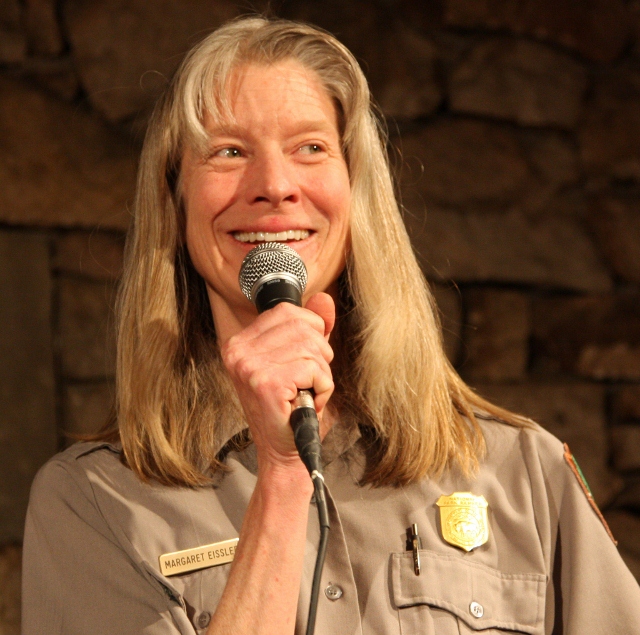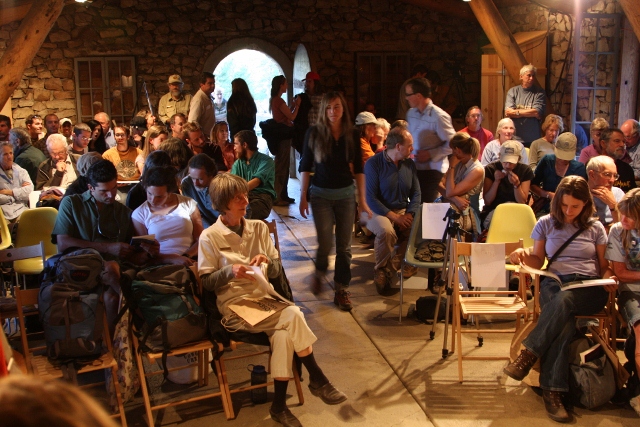Poet Olga Garcia, author of Falling Angels: Cuentos y Poemas and the chapbook Lovely Little Creatures, blogs about her experience facilitating a P&W-supported workshop at Southwest Bakersfield Library in Bakersfield, California.
When
the California
Center for the Book's David Gernand
first connected me with Southwest Bakersfield Library to facilitate a memoir writing
workshop, I had a sudden flashback.
 When
I was eight, my parents packed all five of us kids into an old, avocado-green
station wagon and drove us to Bakersfield
to pick onions. Once there, we toiled in the vicious heat, snapping enormous green
scissors, filling coarse brown sacks with dusty white onions. One foreman came by
every so often to halfheartedly shoo us kids off the field. Within minutes after
he disappeared, we’d run back to our parents to help with the onion picking or the
dragging of sacks that inevitably grew heavier with each added onion.
When
I was eight, my parents packed all five of us kids into an old, avocado-green
station wagon and drove us to Bakersfield
to pick onions. Once there, we toiled in the vicious heat, snapping enormous green
scissors, filling coarse brown sacks with dusty white onions. One foreman came by
every so often to halfheartedly shoo us kids off the field. Within minutes after
he disappeared, we’d run back to our parents to help with the onion picking or the
dragging of sacks that inevitably grew heavier with each added onion.
We
were supposed to work the fields for several weeks that summer, but at night while
we camped out and fought over the bare mattress laid out at the back of the
station wagon, we beseeched our parents to take us home. The smell of onions permeated our clothes, skin,
and hair. It burned our eyes and lingered on our tongues. After a few days, my
father shook his head in defeat, saying we were the worst workers he had
ever seen. As we drove out of Bakersfield,
we waved goodbye to the onion fields from the rear window, promising never
to return.
Thirty-three years later I’m in Bakersfield
again, standing before a group of workshop participants at Southwest Library. It’s
a small, ethnically diverse group of nine and their ages range from twelve to sixty. Some
of them have aspirations of memoir writing; others have come simply to
practice writing. I share my onion story as a means to discuss memoir writing (how place, sound, smell, and taste trigger snapshots of what we’ve lived). We
do several exercises to probe into the personal stories archived in their bodies.
One exercise asks participants to write about a memorable place. Another
asks them to use one of Sandra Cisneros’s vignettes as a springboard to write
about their names. Both exercises produce intimate recollections, and it is
through the sharing of these intimate recollections that we connect with one
another.
Maria, the library branch supervisor, reveals a long-kept
secret. “Well, you see,” she says “my name isn’t actually Maria.” The name was given
to her by a group of Catholic nuns in the Philippines and it stuck. A great beginning to a memoir. Maritza, from Guadalajara, Mexico,
was named after a character in a Brazilian soap opera. And
Gene, the middle-aged man whose Mexican parents didn’t speak a word of English, was named after Gene Autry, the American performer
known as the "Singing Cowboy." As Gene shares his story, his wife leans
into him and mumbles, “I never knew that.”
Photo: Olga Garcia. Credit: Weenobee.com.
Major support for Readings/Workshops events in California is provided by The James Irvine Foundation. Additional support comes from the Friends of Poets & Writers.





 When
I was eight, my parents packed all five of us kids into an old, avocado-green
station wagon and drove us to Bakersfield
to pick onions. Once there, we toiled in the vicious heat, snapping enormous green
scissors, filling coarse brown sacks with dusty white onions. One foreman came by
every so often to halfheartedly shoo us kids off the field. Within minutes after
he disappeared, we’d run back to our parents to help with the onion picking or the
dragging of sacks that inevitably grew heavier with each added onion.
When
I was eight, my parents packed all five of us kids into an old, avocado-green
station wagon and drove us to Bakersfield
to pick onions. Once there, we toiled in the vicious heat, snapping enormous green
scissors, filling coarse brown sacks with dusty white onions. One foreman came by
every so often to halfheartedly shoo us kids off the field. Within minutes after
he disappeared, we’d run back to our parents to help with the onion picking or the
dragging of sacks that inevitably grew heavier with each added onion.  We gathered at
We gathered at  What makes your program unique?
What makes your program unique? Gary Snyder reading his Yosemite trail crew poems within the building made of granite surrounded by the mountains and meadows he loves.
Gary Snyder reading his Yosemite trail crew poems within the building made of granite surrounded by the mountains and meadows he loves.